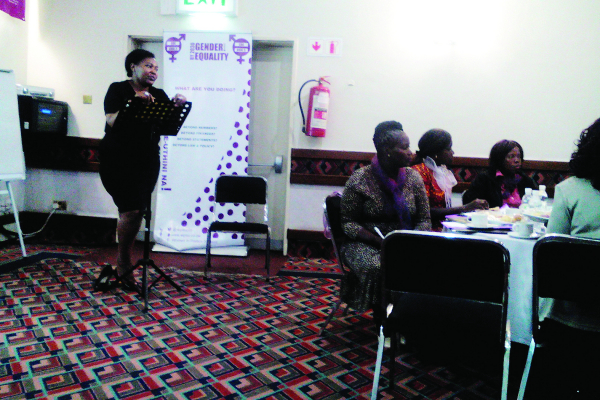
WOMEN have called for a violence-free election, and are demanding 1 000 council seats during the 2018 general elections if Zimbabwe is to achieve gender parity in local authorities.
BY VENERANDA LANGA
Women in Politics Support Unit (WiPSU) board chairperson Vongai Chikwanda yesterday told several female candidates during a workshop on local government elections in Harare that female candidates would next year target seats traditionally occupied by their male counterparts.
“As women, we want an even playing field and call for a violence-free election so that women can campaign freely and also win seats as ward councillors,” she said.
“There are 14 local authorities in the country, and we need to take up those council posts so that women can get seats that have been traditionally occupied by men instead of relying on the proportional representation quota.”
WiPSU executive director Sakhile Sifelani Ngoma said the gender disparities in council elections were so glaring that of the 1 958 councillors in Zimbabwe, only 327 are women.
“There are 1 631 male councillors compared to 372 women and the statistics show that there has been a drop of female councillors from the previous 18% to 16%. We want political parties to begin supporting female candidates so that we can have more women occupying seats as councillors,” she said.
Sifelani Ngoma said Section 56 of the Constitution stipulates gender equality and so during the 2018 elections, political parties must ensure the lists of contestants they hand to the Zimbabwe Electoral Commission include a 50:50 gender equality ratio.
- Chamisa under fire over US$120K donation
- Mavhunga puts DeMbare into Chibuku quarterfinals
- Pension funds bet on Cabora Bassa oilfields
- Councils defy govt fire tender directive
Keep Reading
“Right now, we are not even at 30% gender equality ratio yet the Sadc gender protocol requires equality. Women have the ability to influence in the running of local authorities and so we need to elect them as councillors,” she said.
Sharon Kaseke, of Chitungwiza Manyame Rural District Council, said current statistics show that 60% of women were employed compared to 40% men, yet women are under-represented in local authorities.
“It can be argued if women are equally represented in local government authorities, their grievances on potable water availability, housing and basic health care can be adequately addressed,” Kaseke said.
Association of Rural District Councils of Zimbabwe secretary-general Lucy Furamera said some of the advantages of having women occupying council seats were that they are caring, honest, pay attention to detail and are developmental.











